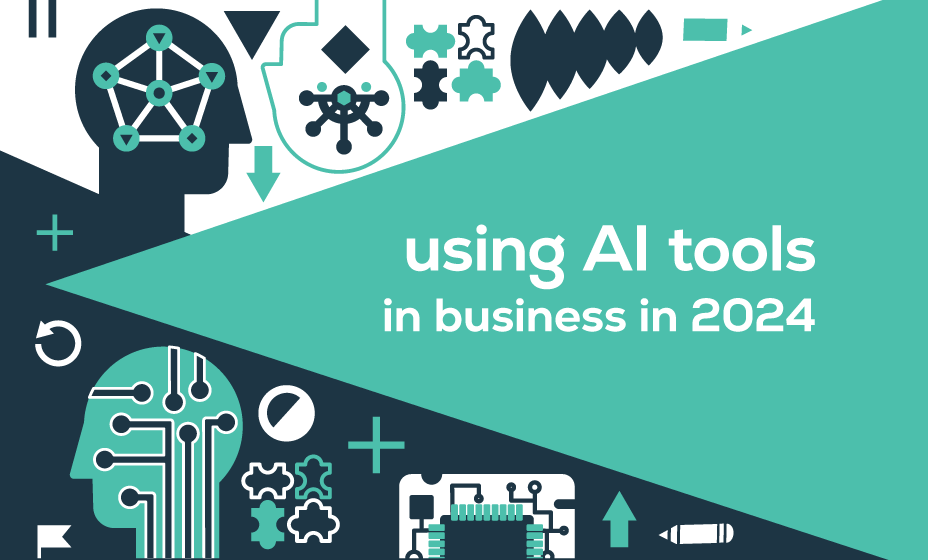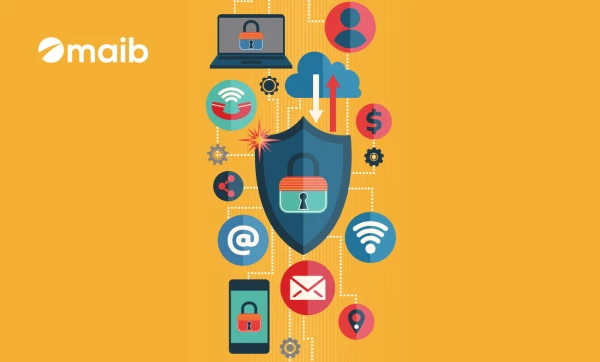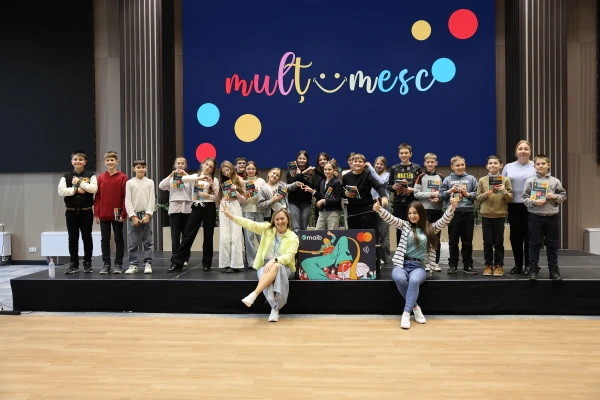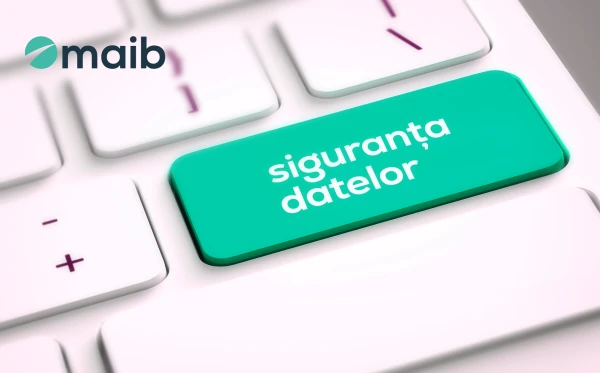Artificial intelligence is gaining popularity, including being implemented in business. How do we support business development in 2024 by applying artificial intelligence tools? This is the topic addressed in the maib edu project by journalist Pavel Zingan and IT entrepreneur Veaceslav Cunev.
Veaceslav, what can artificial intelligence technologies offer to the local business environment today?
I'll start as I always do when I approach this topic. First of all, it can significantly increase personal productivity. Two - it can increase business efficiency. And three - it can ruin your business.
Opportunity and threat at the same time?
We will later touch upon threats, but as you suggested, let's start with opportunities.
We should ask ourselves, "Is it important for me to improve my effectiveness personally?". The answer is obvious - it's essential to everyone. And we don't have to wait any longer. Artificial intelligence already exists and works for everyone who uses it.
Let me explain. I use ChatGPT daily, no matter what I'm doing. Recently, for a start-up, I needed to find facilitators. This is a practice I have never had before. What do I do? Discuss with ChatGPT what my logic should be for working with project consultants. What clauses should be included in the contract? All the unclear issues are clarified immediately.
In addition, if ChatGPT didn't generate images a year ago, now it does. A year ago, it didn't work with PDF files, but today, you can easily upload information in PDF and communicate based on the information included. Moreover, you can ask questions verbally, develop chatbots based on personal expertise and earn money. In short, a wealth of new developments has emerged in just one year.
How much is the paid version of ChatGPT now?
It's $20 monthly. Pay that, and get the most powerful personal assistant to work for you 24/7. It's a fantastic boost in personal productivity, ChatGPT solves a lot of things you previously had to delegate or spend a lot of time doing.
Give us a personal example of using ChatGPT
My colleagues and I started using ChatGPT when hiring certain categories of people. We would ask a candidate a question parallel to ChatGPT at the interview. I'm hiring a marketing professional and asking them what promotional strategy they would propose for a specific product. I ask the same ChatGPT question either in parallel or in advance. 99% of the time, ChatGPT is much more competent. We should ask ourselves: maybe we should hire a less experienced but more dynamic young person, give them access to ChatGPT and solve the staff problem differently?
Of course, such an algorithm won't work if you buy in with the employee and their relationships in the industry. But when connections are out of the question, the choice becomes evident regarding international projects. Do you only use ChatGPTf?
Of course not. Although I use ChatGPT as a personal assistant, specialised personal assistants already rely on artificial intelligence. They generally suggest that you give them access to your social networks to understand your interests better.
What do I actively use? Having to work constantly with large volumes of information, three types of summarisers are my constant helpers. The first helps me reduce the time I spend reading information online. I run a text I would read in ten minutes through the summariser, and after 20 seconds, I have a short extract that I can decide whether to read in detail or not.
You said "three types"
The second is video summarisers. In this case, the time saving is even more significant. You can't watch a video diagonally, but with a summary, you can read just an extract of the content containing the core, so you can quickly find the episode of interest. The third type is large text summarisers. For example, when you need to quickly analyse a new 400-page law on possible new risks for your company. I also use video and image generators, translations, and specialised artificial intelligence systems for study, education and research, which I will lecture on for ASEM teachers. Likewise, I actively use AI, which is in the form of Copilot - "the second pilot" and is integrated into the software I have long used, Coda.io, Perplexity and others.
Although, I've moved on slightly to using AI in business. Almost all offices, from accountants to managers, are connected to ChatGPT.
Trust me, this is the kind of investment that pays for itself repeatedly and immediately. In addition, all the major global players in office software have started integrating artificial intelligence into their products. The Copilot definition - "second pilot" - has already taken root - it's already used in Microsoft Office. It works on the same principles as ChatGPT. Now, you can give a task in Excel to artificial intelligence and customise it only if necessary. Programmers on my team already use Copilot from GitHub regularly - work efficiency on new projects increases by tens of per cent.
That's why it's becoming increasingly important for employees to know engineering promptly and how to ask the right questions of AI. To get rid of the practice of garbage in - garbage out, when questions are incorrectly formulated for artificial intelligence, and then the answers are declared to have been of poor quality.
In addition, the communication principles with artificial intelligence are common to ChatGPT and Copilot. A humorous saying works: knowing the principles frees you from knowing the facts. Even more interestingly, the principles of effective communication with artificial intelligence are no different from communicating with natural intelligence, i.e. humans.
I promised to ask about threats
2023 was the year of testing and defining business models for global players. From 2024, they will start integrating artificial intelligence into their businesses. It is one of two possible threats.
So, there are two threats?
Conceptually, yes. Any business should now go through the filter of both types of threats. The first is that global players will invade the business. One example is the tourism industry. The cost of using an AI chatbot is falling rapidly, and its efficiency is increasing sharply. How will a local travel company fight a global player when you, as a user, go to an AI chatbot, tell it your wishes, tell it your restrictions, e.g. what kind of passport you have, and the chatbot will create your tour, generate your tickets, hotel, transfer even better than a local operator.
And the second threat?
Not all companies are under pressure from global players. But what if your local competitor starts using artificial intelligence and you don't? This is the second type of threat.
But it's important to realise that threats don't exclude opportunities. There is no good or bad news, only information on which to base a timely decision. Once again, a check-up or crash test is now essential for any business.
The subject is vast, but at least I've covered the most critical aspects. Please give us some of your personal best practices for using artificial intelligence
It's more about an algorithm for integrating artificial intelligence into regular working practice. For example, I use HeyGen, which translates video recordings of my speech into other languages, with the AI adapting my articulation to the different languages and using the timbre of my voice. The service already exists, but translating a two-hour conference is expensive. I have created a checklist for the cost and quality of this service. As soon as it drops below 100 euros, which it inevitably will, I will start using it immediately and will be able to change the principles of my teaching work from local to global, even teaching in Spanish.
Look for services that can help you in your work. If they are already accessible and of a good enough quality, use them now. If not, follow up and use them immediately when they become accessible.
It is essential to overcome the barrier of whether or not to use artificial intelligence. And the answer is: "Yes, and right now".


 maibank
maibank
 maib business app
maib business app
 online loans – legal entities
online loans – legal entities
 internet banking - individuals
internet banking - individuals
 new internet banking - maib business
new internet banking - maib business
 internet Banking - BankFlex
internet Banking - BankFlex




